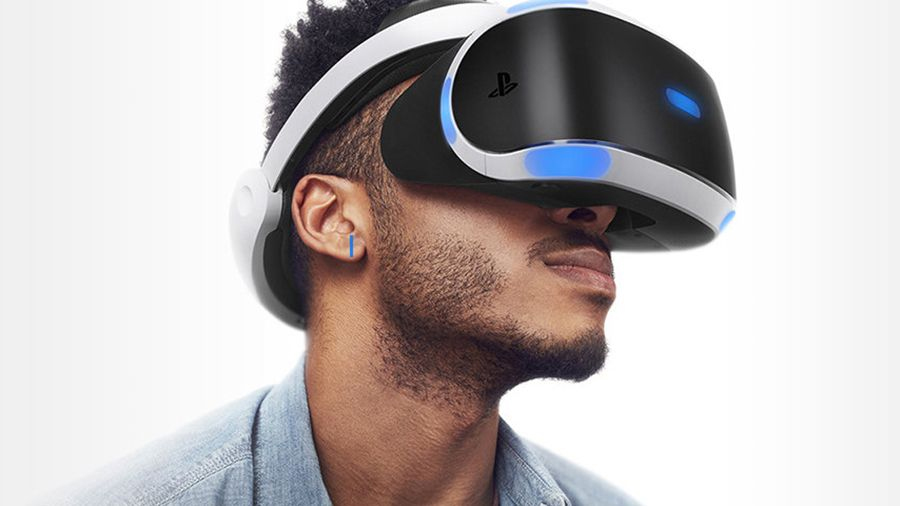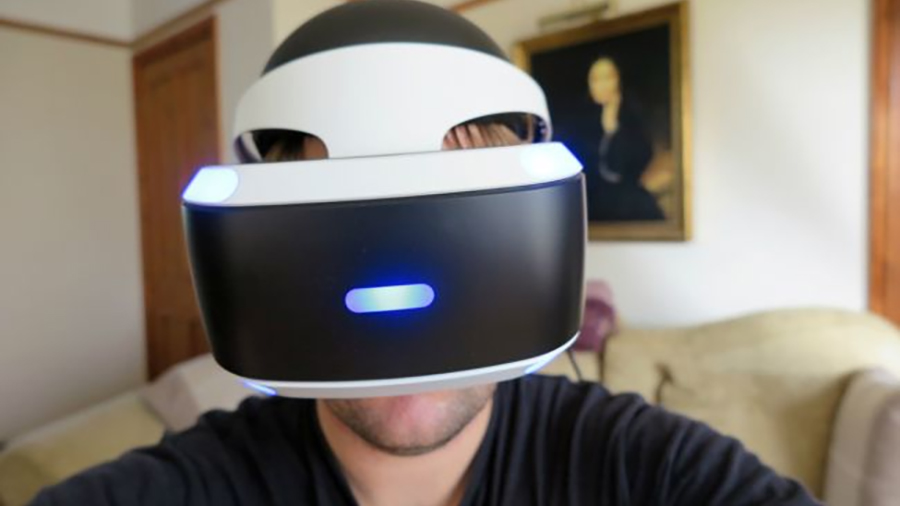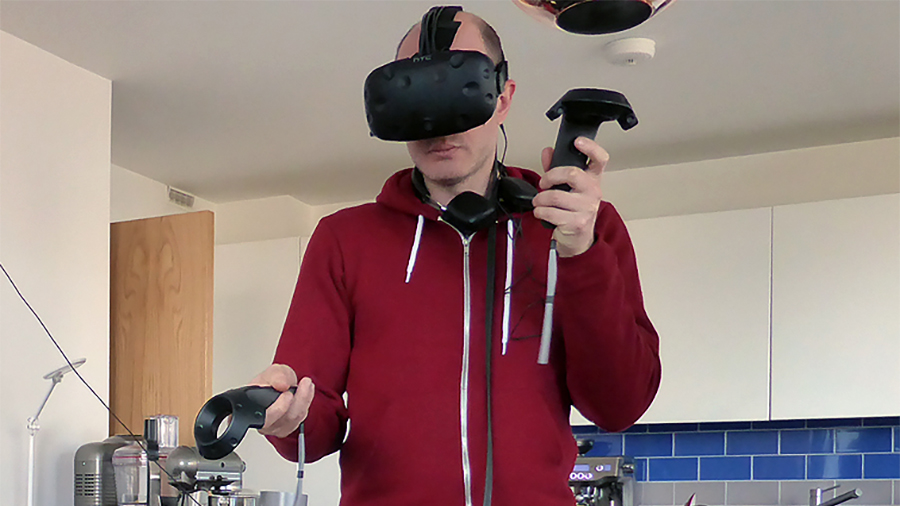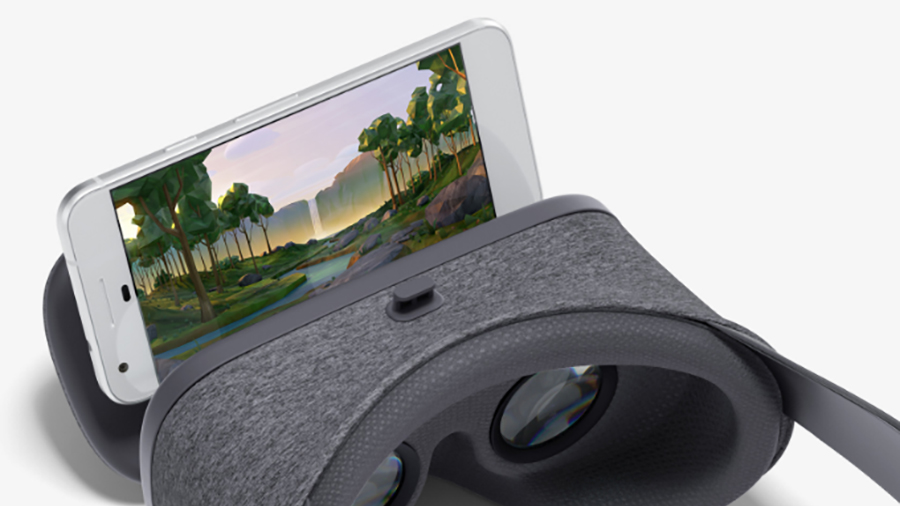5 problems virtual reality needs to solve to go mainstream
It's still early days for VR


There's a lot about virtual reality and VR gear that gets us excited - the chance to explore vast alien worlds from the comfort of our couches, the immersive feel of 360-degree movie trailers, and the many different ways the tech could help in training, health and so on.
VR isn't for everyone though - at least, not yet. As with any fledgling technology trying to find its feet, there are some early problems virtual reality companies need to sort out, and we're going to address them here. The good news is, none of them are insurmountable.
1. Motion sickness

No one really knows how VR affects our brains yet - it's too early for any detailed analysis to have appeared - but if you read any headset review you'll see issues like motion sickness and headaches mentioned. Not everyone gets these problems in VR, but enough people get uncomfortable pretty soon for it to be an issue that needs addressing.
As the technology improves, problems like this should be minimised - you only need to compare today's Oculus Rift with the first demo units to know that. That said, our human brains have never experienced virtual reality like this before, and so manufacturers need to do their research into potential VR 'side-effects' and how we might overcome them.
Presumably the closer VR gets to real life - with better resolutions and no trace of lag - the sooner our brains and eyes will be able to adjust without wanting to vomit. For now, even Oculus recommends taking a break every 30 minutes, which can quickly spoil the feeling of complete immersion if you're trying to get into the latest VR movie or shoot-em-up.
2. Moving in VR

Secondly, and related to our first point, is the problem of moving around in VR. The Vive and the Rift can now track you around a room, and will even help you avoid bumping into stuff - but if VR games are all going to be stuck inside worlds the size of your bedroom or home office then that severely limits what they can do. Grand Theft Auto, it's not.
Many of today's VR games exist in much bigger worlds, but you're either stuck using a traditional gamepad to move (in which case your head feels like it's moving while your body stays sat down) or the developers add some kind of artificial movement mechanic, such as being able to teleport from one place to another. Neither solution is really ideal.
Get all the latest news, reviews, deals and buying guides on gorgeous tech, home and active products from the T3 experts
We don't have the technical know-how to be able to suggest a solution but it's obviously a problem, and there's no quick fix. Maybe the VR suits of the future will be able to trick us into thinking we're running through the streets while we stay stuck in place, but until that happens, playing open world games in VR is always going to feel slightly artificial.
3. VR controllers

...and on a related note, VR controllers, a problem which we think might be easier to fix than the VR movement one. The issue is that you can't really reach out and touch anything in virtual reality, which again breaks the illusion of immersion. Sure, you can interact with stuff, but only in the same detached way as you would in a game on a standard console.
HTC and Oculus have made impressive strides forward with their controllers, and the experience is getting better: you can at least kid yourself that you're holding a gun or feeling the shock of a clanging sword, while the HTC Vive Tracker brings even more real-world kit into the virtual space. Super-smart VR gloves could help here as well.
With the right range of sensors and smart clothing, developing controllers that give a genuine and natural experience shouldn't be too difficult within the next couple of years. After that, VR experts can move on to working out how we're going to feel the wind in our face, or the grass under our feet, when we're actually just sat at home in front of the TV.
4. Hardware cost

There's no getting around it: full-fat VR headsets like the Oculus Rift (£598/$598), the HTC Vive (£759/$799) and the PlayStation VR (£349.99/$398) cost a lot of money. Even the cut-down mobile versions are expensive by the standards of smartphone accessories - £69/$79 for the Google Daydream View, for example, and £80/$99 for the latest Gear VR.
Add to that the cost of a smartphone, a games console or a gaming PC, and you're going to need a pretty big piggy bank to save up enough to join the VR party. Of course this isn't necessarily the manufacturer's fault - developing new technology is difficult and expensive, and HTC and Oculus have poured millions into their virtual reality kit.
As understandable as the prices might be, they're still going to be a big barrier for a lot of casual gamers, particularly when really compelling titles are pretty thin on the ground right now. Prices are going to come down naturally over time, but VR companies are going to be waiting for a few years yet before VR is having a massive difference to their profits.
5. Going beyond games

Even hardcore gamers struggle to justify the expense of a VR headset right now, which means it's going to be even more of a stretch for the rest of us. Admittedly, developers are still getting used to the tools of the VR trade, but the sooner that they can come up with some compelling, must-have VR experiences the better as far as the industry's concerned.
One way that VR might tempt in the masses, and which we've briefly mentioned already, is movies - not only are VR movies easier to make than VR games, they solve the problem of movement because you're often just stood in one place, watching the action unfold. If you can actually be in scenes rather than just viewing them at a distance, that's a reason to buy into VR.
It's likely we're going to see a whole new type of experience appear, one that mixes the interactivity of gaming with the narrative of movies - a type of experience designed from the ground up for virtual reality, rather than something ported across from cinema or games. And when those experiences hit, we might really have a reason to upgrade to VR.
Dave has over 20 years' experience in the tech journalism industry, covering hardware and software across mobile, computing, smart home, home entertainment, wearables, gaming and the web – you can find his writing online, in print, and even in the occasional scientific paper, across major tech titles like T3, TechRadar, Gizmodo and Wired. Outside of work, he enjoys long walks in the countryside, skiing down mountains, watching football matches (as long as his team is winning) and keeping up with the latest movies.
